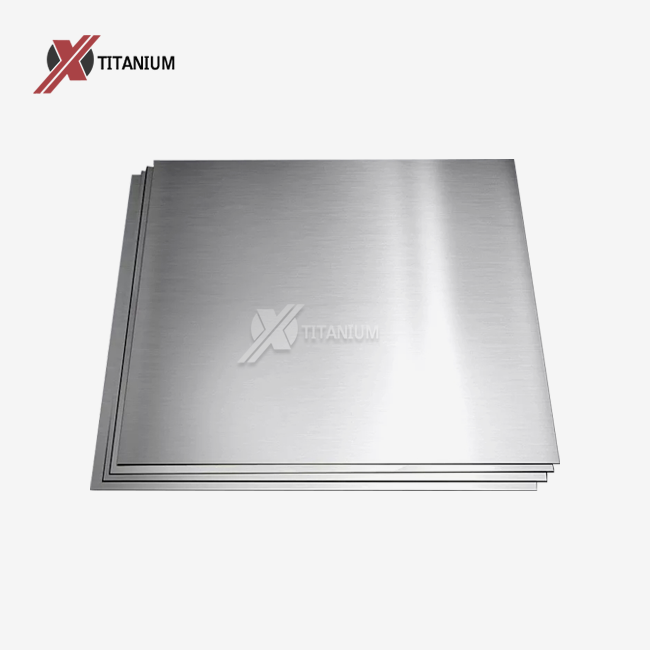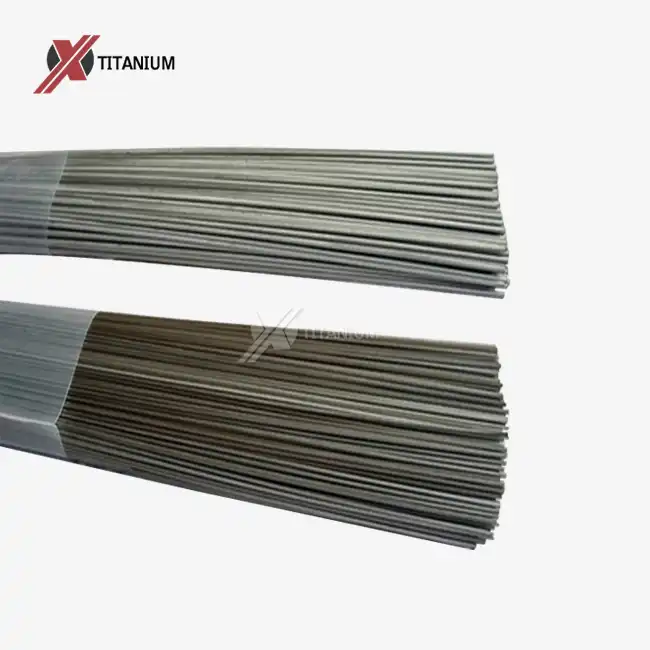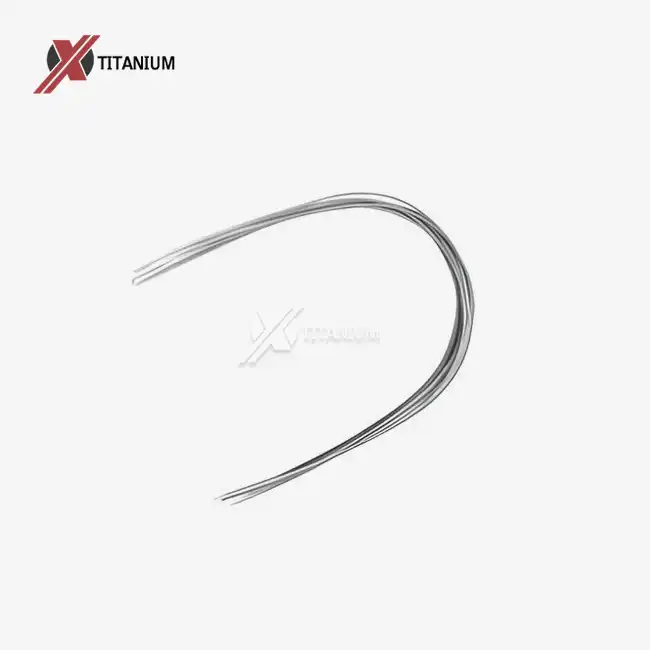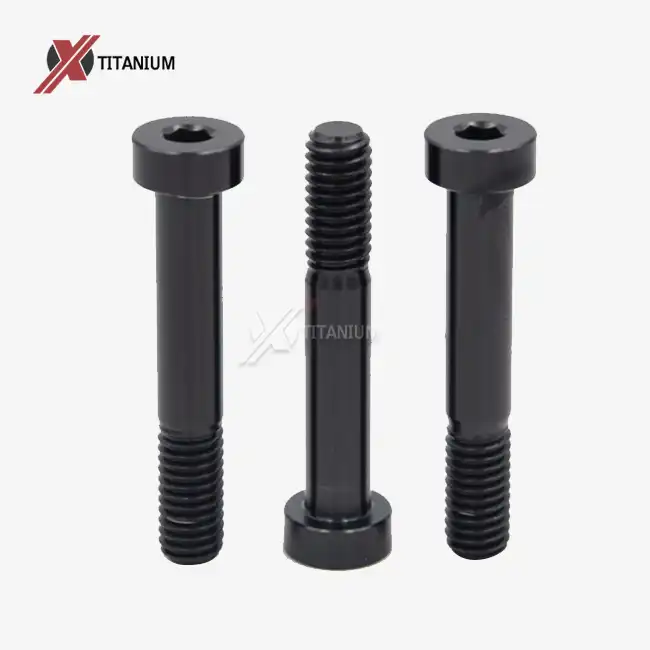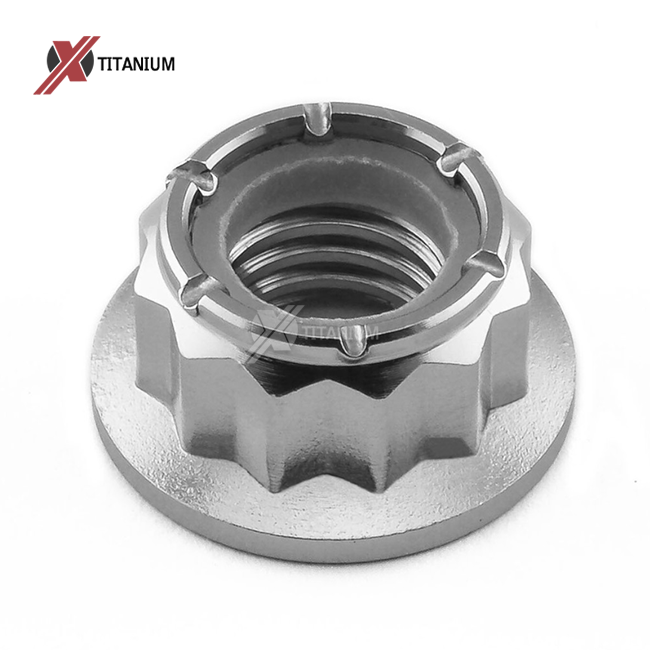Properties and Characteristics of Grade 5 Titanium Plate
Chemical Composition and Microstructure
Grade 5 titanium plate is composed of 90% titanium, 6% aluminum, and 4% vanadium. This specific composition results in a two-phase alpha-beta microstructure, which contributes to its superior mechanical properties. The aluminum content enhances the alloy's strength and reduces its density, while vanadium acts as a beta stabilizer, improving the material's formability and heat treatment response.
Mechanical Properties
The grade 5 titanium plate boasts impressive mechanical properties that set it apart from other materials. With a tensile strength of approximately 900 MPa and a yield strength of 800 MPa, it offers exceptional strength-to-weight ratio. The material's elongation typically ranges from 10% to 15%, providing a good balance between strength and ductility. These properties make grade 5 titanium sheet suitable for applications requiring high strength and fatigue resistance.
Corrosion Resistance and Thermal Stability
One of the standout features of grade 5 titanium plate is its excellent corrosion resistance. The alloy forms a stable, protective oxide layer when exposed to air or moisture, making it resistant to various corrosive environments, including saltwater and many chemicals. This property is particularly valuable in marine and chemical processing applications. Additionally, grade 5 titanium maintains its strength and structural integrity at elevated temperatures, exhibiting good thermal stability up to about 400°C (752°F).
Manufacturing Processes for Grade 5 Titanium Sheet
Melting and Ingot Production
The production of grade 5 titanium plate begins with the melting of raw materials. Vacuum Arc Remelting (VAR) or Electron Beam Melting (EBM) techniques are commonly used to ensure high purity and homogeneity of the alloy. These processes help eliminate impurities and achieve the desired chemical composition. The molten metal is then cast into ingots, which serve as the starting point for further processing.
Hot Working and Cold Rolling
The ingots undergo hot working processes such as forging or hot rolling to break down the as-cast structure and improve the material's properties. This stage also helps in achieving the desired shape and thickness of the plate. Subsequent cold rolling operations further refine the microstructure and enhance the mechanical properties of the grade 5 titanium sheet. The cold rolling process also allows for precise control over the final thickness and surface finish of the plate.
Heat Treatment and Surface Finishing
Heat treatment plays a crucial role in optimizing the properties of grade 5 titanium plate. Solution treatment followed by aging is commonly employed to achieve the desired balance of strength and ductility. Various surface finishing techniques can be applied to meet specific requirements. These include bright annealing for a smooth, reflective surface, pickling for enhanced corrosion resistance, or sandblasting for a matte finish. The choice of surface treatment depends on the intended application and customer specifications.
Applications of Grade 5 Titanium Plate in Various Industries
Aerospace and Defense
The aerospace industry is one of the largest consumers of grade 5 titanium plate. Its high strength-to-weight ratio makes it ideal for aircraft structural components, engine parts, and fasteners. In military applications, the material is used in armor plating, missile components, and spacecraft structures. The alloy's ability to withstand high temperatures and resist fatigue makes it indispensable in these demanding environments.
Medical and Biomedical
Grade 5 titanium plate finds extensive use in the medical field due to its biocompatibility and corrosion resistance. It is commonly used in orthopedic implants, dental implants, and surgical instruments. The material's ability to osseointegrate, or bond with bone tissue, makes it particularly valuable for long-term implants. Additionally, its non-magnetic properties make it suitable for use in medical imaging equipment.
Marine and Chemical Processing
The exceptional corrosion resistance of grade 5 titanium sheet makes it a preferred choice in marine applications. It is used in shipbuilding, offshore oil and gas platforms, and desalination plants. In the chemical processing industry, the alloy is utilized for manufacturing reaction vessels, heat exchangers, and pumps that handle corrosive substances. Its resistance to chlorides and other aggressive chemicals ensures long-term reliability in these harsh environments.
Conclusion
Grade 5 titanium plate has established itself as a crucial material in various high-performance applications across multiple industries. Its unique combination of strength, lightweight properties, and corrosion resistance makes it an ideal choice for aerospace, medical, marine, and chemical processing sectors. As technology advances and new challenges emerge, the versatility of grade 5 titanium sheet continues to drive innovation and enable the development of more efficient and durable products. The ongoing research and development in titanium alloys promise even more exciting applications for this remarkable material in the future.
If you're looking for high-quality grade 5 titanium plate for your next project, look no further than Baoji Chuanglian New Metal Material Co., Ltd. With over a decade of experience in titanium manufacturing and processing, we offer unparalleled expertise and custom solutions to meet your specific needs. Contact us today at info@cltifastener.com or djy6580@aliyun.com to discuss how our grade 5 titanium products can enhance your applications.
FAQs
What is the typical thickness range for grade 5 titanium plates?
Grade 5 titanium plates are available in thicknesses ranging from 0.5mm to 150mm, catering to a wide variety of applications.
Can grade 5 titanium plates be welded?
Yes, grade 5 titanium plates can be welded using various techniques such as TIG welding, although special precautions are needed due to titanium's reactivity at high temperatures.
How does the cost of grade 5 titanium compare to other materials?
While grade 5 titanium is generally more expensive than steel or aluminum, its superior properties often result in lower life-cycle costs for many applications.
References
1. Lutjering, G., & Williams, J. C. (2007). Titanium (2nd ed.). Springer-Verlag Berlin Heidelberg.
2. Donachie, M. J. (2000). Titanium: A Technical Guide (2nd ed.). ASM International.
3. Peters, M., Kumpfert, J., Ward, C. H., & Leyens, C. (2003). Titanium Alloys for Aerospace Applications. Advanced Engineering Materials, 5(6), 419-427.
4. Rack, H. J., & Qazi, J. I. (2006). Titanium alloys for biomedical applications. Materials Science and Engineering: C, 26(8), 1269-1277.
5. Schutz, R. W., & Watkins, H. B. (1998). Recent developments in titanium alloy application in the energy industry. Materials Science and Engineering: A, 243(1-2), 305-315.
